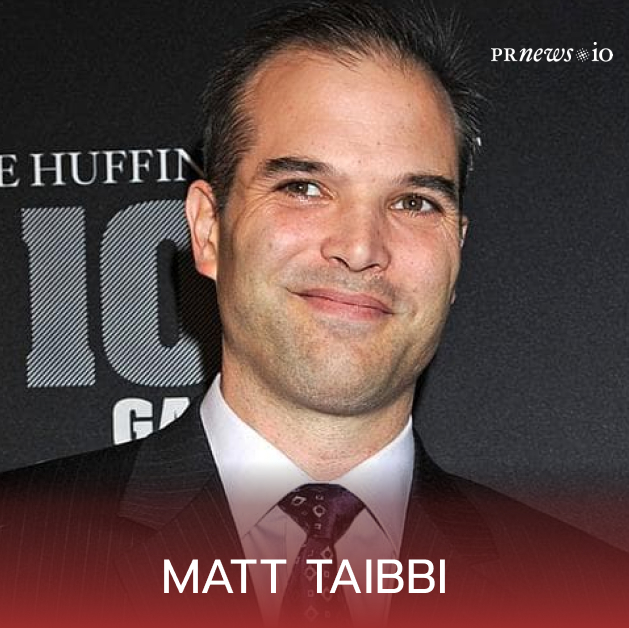The landscape of print and online media is vast and varied, but some voices rise above the cacophony, shaping public discourse and setting the standard for incisive reporting and compelling storytelling.
This article shines a spotlight on the most influential figures in contemporary journalism – the reporters, editors, and publishers whose work not only informs but also inspires and sometimes provokes. From venerable print institutions to cutting-edge digital platforms, these individuals have demonstrated an unwavering commitment to truth, accountability, and the craft of journalism.
Print and Online Journalists
- Bob Woodward – The Washington Post
- Maggie Haberman – The New York Times
- Glenn Greenwald – The Intercept
- Bari Weiss – Common Sense
- Ben Smith – Semafor, formerly BuzzFeed News
- Ezra Klein – The New York Times
- Kara Swisher – The New York Times, formerly Recode
- Matt Taibbi – Substack
- Maureen Dowd – The New York Times
- Jemele Hill – The Atlantic
Journalism’s Most Impactful Leaders
Bob Woodward

Bob Woodward is an American investigative journalist best known for his work with Carl Bernstein at The Washington Post, where they did much of the original reporting on the Watergate scandal that led to President Richard Nixon’s resignation. Since then, Woodward has written numerous best-selling books on American politics, presidents, and institutions, often based on extensive interviews with insiders. He has worked for The Washington Post since 1971 and is currently an associate editor there. Woodward is widely regarded as one of the most influential and well-respected journalists in modern American history.
Woodward’s investigative prowess is marked by his detailed and well-sourced reporting, often based on confidential interviews and a deep understanding of the inner workings of political power. He has authored or co-authored 21 nonfiction books, many of which have topped the bestseller lists and provided profound insights into the American presidency and other significant political events.
His notable works include “All the President’s Men,” co-written with Bernstein, which chronicles the Watergate investigation, and “Fear: Trump in the White House,” which offers a critical look at the Trump administration. Woodward’s journalism is characterized by its rigor, depth, and dedication to uncovering the truth, making him one of the most respected figures in American journalism.
Maggie Haberman

Maggie Haberman is an esteemed American journalist and author, widely recognized for her comprehensive coverage of U.S. politics, particularly her reporting on former President Donald Trump. Born on October 30, 1973, she has built a distinguished career in political journalism, currently serving as a White House correspondent for The New York Times and as a political analyst for CNN.
Haberman’s journalism is noted for its insightful analysis and detailed reporting, often drawing on her extensive network of sources within the political sphere. Her deep understanding of Trump’s presidency, combined with her relentless pursuit of facts, has made her one of the foremost authorities on his administration. She played a significant role in breaking numerous stories about the Trump White House, offering the public an inside look at the operations and controversies of his tenure.
In addition to her reporting, Haberman has co-authored several pieces that have been pivotal in shaping public discourse on contemporary American politics. Her work has earned her multiple accolades, including a Pulitzer Prize for National Reporting in 2018, which she shared with her colleagues for their coverage of the Trump campaign’s connections to Russia.
Haberman’s contributions to journalism are marked by her tenacity, keen insights, and unwavering commitment to uncovering the truth, solidifying her reputation as one of the leading journalists of her generation.
Glenn Greenwald

Glenn Greenwald is an influential American journalist, author, and lawyer, renowned for his fearless investigative reporting and commitment to civil liberties. Born on March 6, 1967, Greenwald has made significant contributions to journalism, particularly in the areas of government surveillance, national security, and freedom of the press.
Greenwald gained international prominence in 2013 when he published a series of articles based on documents leaked by former NSA contractor Edward Snowden. These revelations exposed the extent of global surveillance programs run by the NSA and other intelligence agencies, sparking widespread debate on privacy and government overreach. His work on this story, which appeared in The Guardian, earned him a Pulitzer Prize for Public Service in 2014.
Prior to his groundbreaking reporting on the Snowden leaks, Greenwald wrote for Salon and authored several books, including “How Would a Patriot Act?” and “With Liberty and Justice for Some.” In 2014, he co-founded The Intercept, an online publication dedicated to adversarial journalism and protecting whistleblowers.
Greenwald’s journalism is characterized by his rigorous analysis, unwavering advocacy for transparency, and a staunch defense of civil liberties. His fearless approach to challenging powerful institutions and uncovering hidden truths has made him a prominent and sometimes controversial figure in contemporary journalism. Through his work, Greenwald continues to influence public discourse on critical issues related to privacy, security, and the role of the media in holding power to account.
Bari Weiss

Bari Weiss is a prominent American journalist, editor, and author known for her outspoken views on cultural and political issues, as well as her advocacy for free speech. Born on March 25, 1984, Weiss has built a significant career in journalism, contributing to major publications and engaging in public debates on topics ranging from identity politics to the state of journalism itself.
Weiss began her career at The Wall Street Journal, where she worked as an op-ed editor and writer. She later joined The New York Times as an opinion editor and writer, where she became well-known for her columns on culture and politics. Her tenure at The New York Times was marked by her critiques of both the left and the right, as well as her defense of open discourse and criticism of what she viewed as the growing illiberalism on college campuses and in the media. In 2020, she resigned from The New York Times, citing a hostile work environment and the stifling of diverse viewpoints.
After leaving The New York Times, Weiss launched “Common Sense,” a Substack newsletter where she continues to write about current events, free speech, and other cultural issues. She has also authored the book “How to Fight Anti-Semitism,” which won a National Jewish Book Award in 2019.
Weiss’s work is characterized by her fearless commentary, willingness to challenge prevailing orthodoxies, and her commitment to fostering a marketplace of ideas. Her contributions to journalism have sparked important conversations about media bias, free expression, and the role of journalism in a democratic society.
Ben Smith

Ben Smith is a distinguished American journalist and media executive known for his influential role in digital journalism and his keen insights into media trends. Born on November 4, 1976, Smith has had a significant impact on the media landscape through his work as a reporter, editor, and columnist.
Smith first gained prominence as a political reporter and blogger, covering New York politics for the New York Observer and the New York Daily News. His incisive reporting and knack for breaking news stories quickly led him to become a leading voice in political journalism.
In 2011, Smith joined BuzzFeed as its editor-in-chief, where he played a crucial role in transforming the site into a major news organization. Under his leadership, BuzzFeed expanded its focus from viral content to serious journalism, establishing a robust news division that broke significant stories and earned critical acclaim. Smith’s tenure at BuzzFeed was marked by innovative approaches to digital storytelling and the integration of traditional journalistic values with new media formats.
In 2020, Smith left BuzzFeed to join The New York Times as a media columnist. In this role, he has continued to shape conversations about the media industry, offering insightful analyses on the intersection of technology, journalism, and society. His columns often explore the dynamics of media power, the evolution of news consumption, and the challenges facing contemporary journalism.
In 2022, Smith co-founded Semafor, a global news startup, further cementing his reputation as a media innovator. Semafor aims to provide high-quality, transparent journalism with a focus on clarity and context, addressing some of the critical issues facing the news industry today.
Ben Smith’s career is characterized by his adaptability, forward-thinking approach, and dedication to fostering a vibrant and informed public discourse. His contributions to journalism have not only influenced the industry but also helped shape the way news is consumed in the digital age.
Ezra Klein

Ezra Klein is a prominent American journalist, political analyst, and author, known for his deep analysis of policy and politics, as well as his ability to explain complex issues in an accessible manner. Born on May 9, 1984, Klein has made significant contributions to media and public discourse through his writing, commentary, and digital media ventures.
Klein began his career as a blogger, writing about policy and politics for various outlets, including The American Prospect. He gained a wider audience through his work at The Washington Post, where he founded and led the Wonkblog, a blog focused on policy analysis and data-driven journalism. His work at Wonkblog established him as a leading voice in explanatory journalism, breaking down intricate policy details for a general audience.
In 2014, Klein co-founded Vox, a digital media company aimed at improving public understanding of complex issues through clear, concise, and informative content. As the editor-at-large, Klein helped shape Vox’s editorial direction and pioneered its emphasis on “explainers” — articles and videos designed to provide comprehensive background on current events and policy debates.
In 2020, Klein joined The New York Times as an opinion columnist and podcast host. His columns often delve into political polarization, governance, and the intersection of technology and society. His podcast, “The Ezra Klein Show,” features in-depth interviews with thought leaders across various fields, offering listeners nuanced discussions on topics ranging from politics to science and culture.
Klein is also the author of “Why We’re Polarized,” a book that explores the causes and consequences of political polarization in the United States. His work is characterized by its analytical rigor, clarity, and commitment to enhancing public understanding of important issues.
Kara Swisher

Kara Swisher is a renowned American journalist, columnist, and podcast host, widely recognized for her incisive reporting and commentary on the technology industry and its key players. Born on December 11, 1962, Swisher has built a distinguished career by breaking major stories and providing deep insights into the world of Silicon Valley and digital innovation.
Swisher began her career in journalism at The Washington Post, before moving to The Wall Street Journal, where she co-founded the influential technology conference, D: All Things Digital, alongside Walt Mossberg. The conference became a premier event for tech industry leaders and innovators, featuring high-profile interviews and discussions.
Swisher’s journalism is marked by her tenacity, deep industry knowledge, and fearless interviewing style. Her contributions have not only provided critical insights into the technology sector but have also influenced how the public and policymakers understand and interact with the digital world. Kara Swisher remains one of the most influential and respected voices in tech journalism today.
Matt Taibbi

Matt Taibbi is a prominent American journalist, author, and political commentator, known for his incisive and often provocative reporting on politics, finance, and media. Born on March 2, 1970, Taibbi has built a reputation for his fearless investigative journalism and his distinctive, often acerbic writing style.
Taibbi began his career as a freelance journalist, working in Russia during the 1990s where he co-edited an English-language newspaper, The eXile, known for its irreverent and critical take on Russian and Western politics. His experiences in Russia helped shape his journalistic voice, blending sharp critique with humor and satire.
He gained wider recognition after joining Rolling Stone magazine in 2004, where he became a contributing editor. At Rolling Stone, Taibbi covered a range of topics, but he is perhaps best known for his hard-hitting articles on the financial crisis of 2008 and Wall Street’s role in it. His piece “The Great American Bubble Machine,” which famously described Goldman Sachs as a “great vampire squid,” is one of his most notable works, highlighting his ability to distill complex financial issues into compelling narratives.
Maureen Dowd

Maureen Dowd is a prominent American journalist, author, and columnist known for her sharp wit, incisive commentary, and keen insights into American politics and culture. Born on January 14, 1952, Dowd has been a significant figure in journalism for several decades, primarily through her work at The New York Times.
Dowd began her career in journalism at the Washington Star in 1974, covering sports, metro news, and eventually politics. After the paper closed in 1981, she joined Time magazine before moving to The New York Times in 1983. At The New York Times, she initially worked as a metropolitan reporter and then as a correspondent in the Washington bureau, where she covered the White House and various political campaigns.
In 1995, Dowd became an op-ed columnist for The New York Times, where she quickly gained a reputation for her distinctive voice and her ability to blend humor with serious political analysis. Her columns often feature sharp critiques of political figures from both major parties, and she is known for her ability to capture the nuances and absurdities of the political landscape.
Dowd’s writing style is marked by its wit, satirical edge, and literary flair, often drawing on cultural references and historical analogies to make her points. Her commentary spans a wide range of topics, including presidential politics, social issues, and international affairs. She has received numerous accolades for her work, including the Pulitzer Prize for Commentary in 1999 for her columns on the Clinton-Lewinsky scandal.
Jemele Hill

Jemele Hill is a renowned American sports journalist, commentator, and author, known for her insightful and candid analysis of sports, culture, and politics. Born on December 21, 1975, Hill has made significant contributions to journalism, particularly in the realms of sports and social issues.
Hill began her career in journalism with the Detroit Free Press, covering Michigan State football and basketball. She then worked for the Orlando Sentinel as a general sports columnist before joining ESPN in 2006. At ESPN, Hill’s career flourished as she took on various roles, including columnist for ESPN.com and co-host of shows like “His & Hers” and “SC6,” the evening edition of SportsCenter, alongside Michael Smith.
During her tenure at ESPN, Hill became known for her fearless commentary on sports and its intersection with race, politics, and society. Her willingness to address controversial topics, such as social justice issues and the role of athletes in political activism, set her apart in the sports journalism field.
In 2017, Hill made headlines for her tweets criticizing President Donald Trump, which sparked a national conversation about the role of journalists and commentators in political discourse. Following her departure from ESPN in 2018, Hill continued to be an influential voice in media, joining The Atlantic as a staff writer where she wrote on sports, politics, and culture.
In addition to her work at The Atlantic, Hill launched a successful podcast, “Jemele Hill is Unbothered,” on Spotify. The podcast features interviews with prominent figures in sports, entertainment, and politics, and covers a wide range of topics, including social justice, culture, and personal stories.
Is your business in need of a PR makeover?
- Benefit from media coverage assistance.
- Witness a refined branding approach.
- Watch as your recognition soars.





